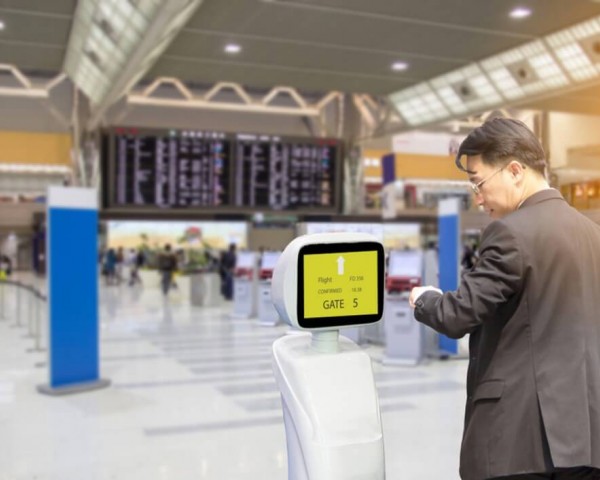Travel technology promises more efficient adventures to explore an increasingly connected but equally amazing world. The travel industry emerges from the pandemic more convinced than ever of the importance of developing and integrating new technologies that streamline passenger transit, streamline connections between major cities, improve traveler safety and protect the environment.
From airport security systems and programs to personalized experiences for each reservation, to sales tools and platforms to connect travelers, these are some of the ways in which the future of travel is being designed today.
Hotel Evolution
The hotel industry is putting control of the stay in the hands of its guests. After the success of online agencies and the emergence of rental property platforms, hotels are perfecting their mobile apps to promote their amenities and consumption centers.
Robotics is also transforming the hotel sector. It is increasingly common to find automated hosts welcoming guests upon arrival at the facility, receiving and delivering room service orders, taking care of room cleaning and transporting the guests’ luggage.
Next Station
Technological innovations are driving our journeys.
By car: Driven by technologies such as data science, artificial intelligence and the internet of things, the evolution of automobiles, which today incorporate different computer systems in each vehicle, promotes simpler, safer, more efficient and environmentally friendly road trips.
By plane: Among the technologies that are transforming aviation and the future of travel, identified by the International Air Transport Association in its report Future of the Airline Industry 2035, are cybersecurity, robotics, Virtual Reality, alternative energy sources, 3D printing, internet of things, and geospatial technologies.
By train: Thanks to the emergence of alternative fuels and the convenience it represents for travelers, many experts have pointed to trains as one of the means of transportation that will define the future of tourism. Its advantages? The increase in high-speed rail cars and the possibility of automating them are on the horizon.
On cruise ships: After the pandemic, cruise ships are incorporating more contactless technologies and mobile applications integrated with biometric information to streamline processes such as check-in. They are also opting for better designs and renewable energy sources to lessen their environmental impact.
On the Horizon
Four ways technology is transforming travel habits.
- Security
While new recognition technologies – powered by travelers’ biometric information – are streamlining security checkpoints at airports and hotels, emergency services are also better prepared to respond to an eventuality.
- Robotics
In addition to finding new functions in the different areas of a hotel, robots are transforming other stages of our travels, such as in airports, where it is increasingly common to see them taking care of security functions and answering passengers’ questions.
- Artificial Intelligence
Hotel chains, airlines, travel agencies, tour operators and shipping companies are taking advantage of rapid data processing and artificial intelligence to obtain information and conclusions about their customers’ preferences and manage their inventories.
- Virtual Reality
The travel industry has been quick to embrace virtual reality as a tool to inspire our next adventures around the world: whether it’s travel agencies inviting customers to “visit” a destination before making a reservation or hotels offering tours of their properties.




